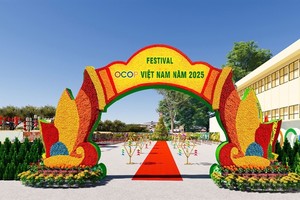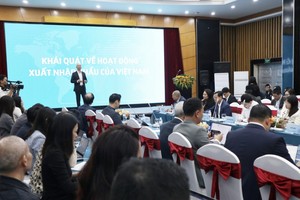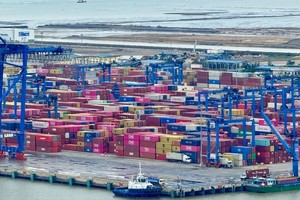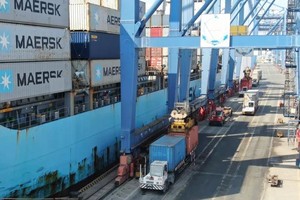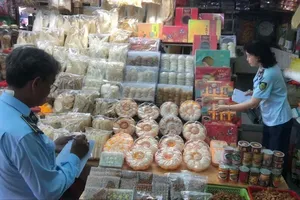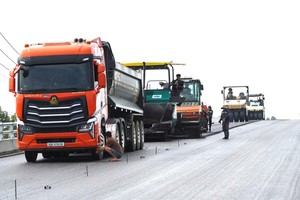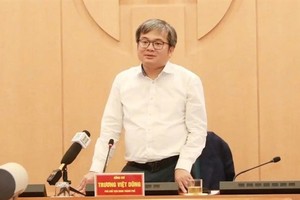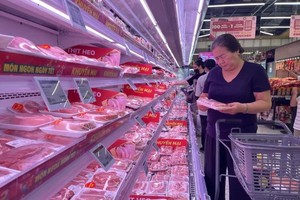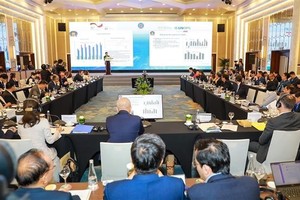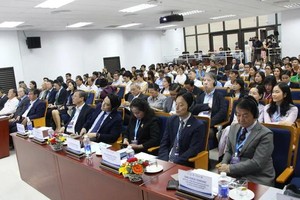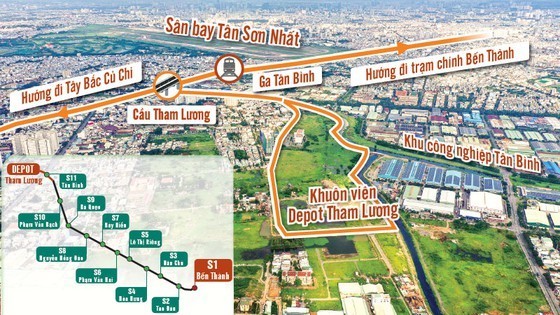
Ho Chi Minh City is experiencing a surge of both domestic and foreign private investment into its urban rail projects, offering a great opportunity for the city to develop a modern public transport network and save budget.
Among the upcoming lines, Metro Line 2 (Ben Thanh – Tham Luong) is attracting the most attention from investors. The 11-km route will connect the city centre with the northwest area, with a total estimated cost of over US$2.1 billion.
A consortium comprising Deo Ca Group and Fecon (Vietnam), and PowerChina and Sucgi (China) has recently proposed investing in Line 2 and other urban rail projects across the city.
Earlier, Truong Hai Group (Thaco) proposed investing in Line 2's Tham Luong – Ben Thanh and Ben Thanh – Thu Thiem segments, and in the nearly 42-km Thu Thiem – Long Thanh railway, with an estimated cost of US$3.4 billion.
Another consortium comprising Dai Dung Group, Construction Corporation No. 1, and Hoa Phat Group also expressed interest in metro projects, particularly Line 2.
Meanwhile, Sovico Group said it wants to invest in Metro Line 4, a 47.3-km route connecting Dong Thanh to the Hiep Phuoc Industrial Park.
Malaysian developer Gamuda Land is eyeing a metro line between HCMC and Long Thanh International Airport in neighbouring Dong Nai province.
One of the most ambitious proposals comes from Vietnam's leading private conglomerate, Vingroup, which aims to build a 48.7-km metro line from the city centre to Can Gio, at an estimated cost of US$4 billion. Construction could begin as early as 2026 after investment procedures are completed.
The city plans to build seven metro lines totaling 355 km by 2035, with a projected investment exceeding US$40 billion. During the 2035-2045 period, the network will be expanded by 155 km.
The investment is expected to be accelerated thanks to the National Assembly’s Resolution 188 on the pilot rollout of special policies for urban rail development in the southern metropolis and Hanoi. HCMC can now use direct contractor selection and simplified investment procedures, helping fast-track Metro Line 2, whose construction is set to begin later this year.
Chairman of the municipal People’s Committee Nguyen Van Duoc said that the city welcomes the private sector’s involvement.
“Private investment in metro projects not only saves public funds but also improves efficiency and speeds up implementation."
Experts say the investment wave is fueled by the NA’s Resolution 188 and the Politburo’s Resolution 68 on private sector growth. These policies have inspired confidence and initiatives among domestic companies.
Dr. Nguyen Quoc Hien, Deputy Head of the city Management Authority for Urban Railways (MAUR), said Resolution 188 unlocks urban rail development through five key mechanisms - capital mobilisation, streamlined procedures, transit-oriented development (TOD), rail industry promotion, and workforce training.
According to Prof. Dr. Vo Xuan Vinh, head of the Institute for Business Research at the University of Economics HCMC, Vietnamese enterprises are now more confident and willing to take on large-scale projects with long-term returns.
With strong domestic investors involved, HCMC has a chance to develop a metro system that is fast, efficient, and budget-conscious, he said.


